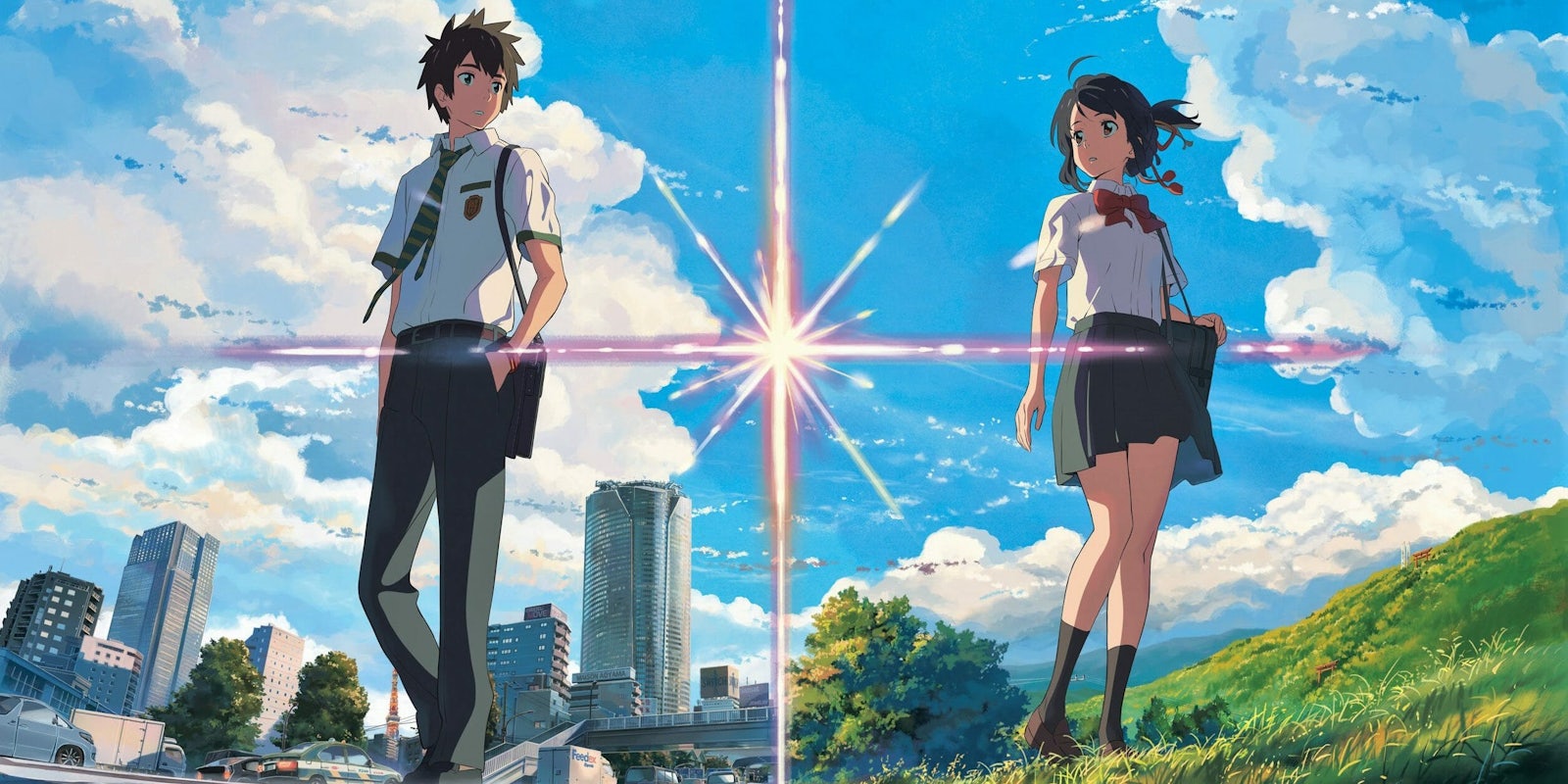Released in Japan last year, Your Name is already the highest grossing anime film in the world, overtaking Studio Ghibli‘s Spirited Away. It’s a quietly beautiful drama, bringing together universal themes of teen anxiety and cultural differences.
Your Name begins as a straightforward body-swap story between two strangers: a high school girl named Mitsuha, and a teen boy named Taki. For U.S. viewers, it may call back to the heyday of modern fantasy romances like 13 Going On 30, The Lake House, and Sliding Doors. But Your Name focuses less on romance and the comedy of unfamiliar gender roles, and more on the differing backgrounds of its lead characters.
Mitsuha lives in the mountain town of Itomori, frustrated by her quiet routine of attending a small, rural school, braiding thread with her grandmother, and learning traditional dances with her little sister. Taki basically has her ideal life, working and going to school in the middle of Tokyo.
This story clearly resonated with Japanese audiences, as a sensitive examination of the cultural divide between urban and rural culture. Mitsuha can’t wait to leave home, but it’s obvious to the viewer that she is gifted with a strong sense of cultural identity. She’s part of the local community, and her grandmother teaches her the local myths and religious rituals. Meanwhile Taki has more personal freedom, but his life—sharing an apartment with his disinterested dad; hanging out in cafes with his friends; working at an Italian restaurant—could take place in any city in the world. Switching places with Mitsuha gives him a new outlook, although the film thankfully avoids any heavy-handed message about one lifestyle being better than the other.
This contrast between tradition and modernity is woven into every aspect of the film, combining fairytale imagery with a realistic modern setting. Taki and Mitsuha come up with practical solutions for their predicament, logging diary entries in each other’s phones when they swap bodies. This balances out with more fantasy elements in the latter half of the story, after an unexpected genre-shift about halfway through.
Writer/director Makoto Shinkai opted for a realistic style of animation, sinking into the beauty of Tokyo cityscapes and Itomori’s sun-dappled countryside. It evokes a sense of wonder, grounded in reality with plenty of quiet moments to allow the story to breathe.
If you get the chance to see this film on the big screen, do so. As well as being a wonderful visual and emotional experience, it’s a reminder that “universal” stories don’t need to be generic, but instead thrive on specificity. Mitsuha and Taki’s personalities and struggles are rooted in their individual upbringings, yet are eminently relatable.
Your Name is out in select theaters on April 7.
